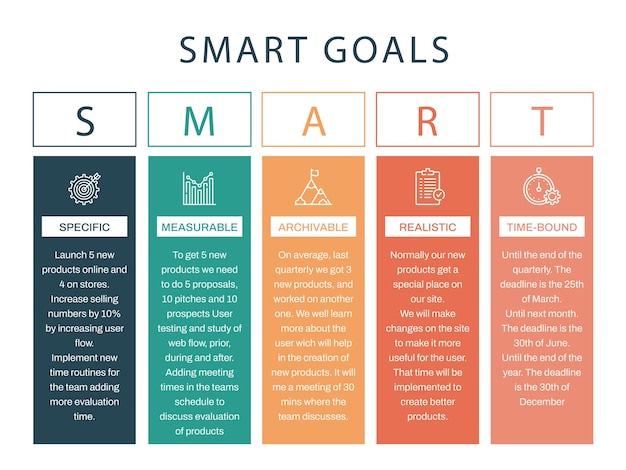How To Determine If a Goal is Right For You - An Overview
Goals are one of the most important things you can have in your life. Without a clear idea of what you want out of life, it can be difficult to know where to begin. Decades of research and experience have shown that goals are one of the most effective ways to get people excited about starting new things. They force you to take a critical look at both your objectives and your methods for achieving them. If you’re reading this, chances are you’re looking for some guidance on how to determine if a goal is right for you – specifically, whether or not it’s something that should be part of your long-term plan. If that’s the case, then this article is for you! In this article, we’ll discuss everything from why goals matter, to how to set them, to how they can help you along the journey toward reaching your personal and professional goals alike.
What Is A Goal?
A goal is an ambitious, strategic, or specific outcome you have in mind for yourself. It could be a new skill you’re interested in learning or the promotion of a project you’ve been working on for a while. Goals are meant to be specific, realistic, and measurable so that you know for certain what you want to work on next, and you can put your energy toward it accordingly.
Depending on how you want to use your goals, this can be an incredibly helpful or a very harmful thing. On the one hand, having specific and realistic goals can help you identify and prioritize tasks and activities that are important to you in life. On the other hand, having unrealistic, aspirational goals can consume your energy and leave you feeling stuck.
Why is a Goals So Important?
If you’ve ever felt stuck or overwhelmed in any aspect of your life, you’ve likely considered giving up. But the thing is, giving up is never an option. You can’t let things get to the point where you’re not able to cope any longer and, in some cases, it might be better to kickstart your goals and work toward them more quickly. Once you understand the benefits of goals and why they’re so important, you can better understand how to set them, as well as how they can help or hinder your progress.
How to Set a New Goal
The first thing you need to do is sit down and think about what your new goal is. You can do this by writing it down, or by using a tool like the New Goal Assistant, which will guide you in setting up a goal-setting method that works best for you. Once you’ve got a goal in mind, the next thing you need to do is break the goal down into smaller, more achievable goals. This is crucial, as it gives you room to grow and upgrade your goal if needed. Goals have to be achievable, and you need to be kind to yourself so that you don’t end up aiming too high and hitting a wall. Your new goal should be smaller than your old goal, but not so small that you can’t see yourself working toward it in the future.
Once you’ve broken your new goal down into smaller, more achievable goals, the next thing you need to do is set a timer for 30 minutes. For example, if your new goal is to work out for an hour every day for the next month, set a timer for 30 minutes. After the 30 minutes have elapsed, count the minutes until you turn back the clock and do whatever you were doing before the timer went off. This is important, as it’ll help you refocus on the positive aspects of working out and get your body moving again. It’ll also help you to stop thinking about how much time you spent doing it and how you wish you could have spent it doing other things.
Set Your New Goal
Once you’ve set your new goal, make a note of why you’re choosing to work towards it. This will help you stay focused and motivated, as well as help you remember why you’re doing this in the first place. Once you’ve chosen a reason for working toward your goal, make sure it’s something you want to focus on in your life. It could be a hobby, a sport, a personal goal, or something else. If the goal is something else, then write it down.
Conclusion
A goal is the result of all your hard work. If you set a goal and don’t follow through, it’s a disaster. Your goal can be anything – from achieving your life’s first 5k to starting a new business venture. When you have a goal, it gives you something to look forward to each day. It gives you purpose and something to work toward. It gives you something to worry about and something to aim for.
If you’re struggling with setting a goal and need some motivation, try using the goal-setting method discussed in this article. By breaking down your new goal into smaller, more achievable goals, you’ll be more likely to succeed in setting it.


